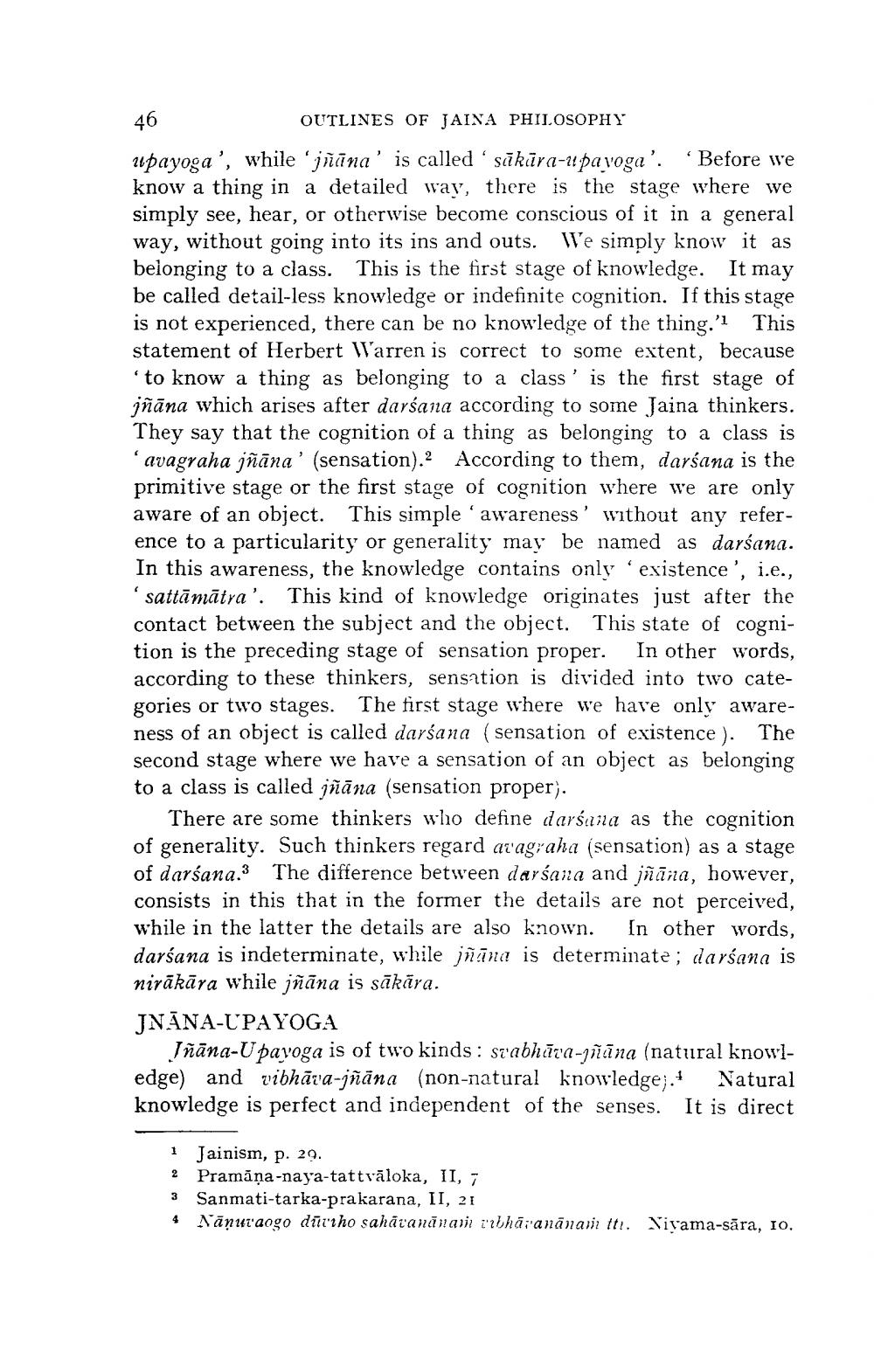________________
46
OUTLINES OF JAINA PHILOSOPHY
upayoga', while 'jšīna' is called ' sīkīra-upavoga'. 'Before we know a thing in a detailed way, there is the stage where we simply see, hear, or otherwise become conscious of it in a general way, without going into its ins and outs. We simply know it as belonging to a class. This is the first stage of knowledge. It may be called detail-less knowledge or indefinite cognition. If this stage is not experienced, there can be no knowledge of the thing.'! This statement of Herbert Warren is correct to some extent, because 'to know a thing as belonging to a class' is the first stage of jñāna which arises after darśana according to some Jaina thinkers. They say that the cognition of a thing as belonging to a class is 'avagraha jñāna' (sensation). According to them, darśana is the primitive stage or the first stage of cognition where we are only aware of an object. This simple' awareness' without any reference to a particularity or generality may be named as darśana. In this awareness, the knowledge contains only existence', i.e., 'sattāmātra'. This kind of knowledge originates just after the contact between the subject and the object. This state of cognition is the preceding stage of sensation proper. In other words, according to these thinkers, sensation is divided into two categories or two stages. The first stage where we have only awareness of an object is called darśana (sensation of existence). The second stage where we have a sensation of an object as belonging to a class is called jñāna (sensation proper).
There are some thinkers who define darśana as the cognition of generality. Such thinkers regard at'agraha (sensation) as a st of darśana.3 The difference between darśana and jñana, however, consists in this that in the former the details are not perceived. while in the latter the details are also known. In other words, darśana is indeterminate, while nana is determinate; darśana is nirākāra while jñāna is sākāra. JNĀNA-UPAYOGA
Iñāna-U pavoga is of two kinds: stabhāra-iiāna (natural knowledge) and vibhāva-jñāna (non-natural knowledge;. Natural knowledge is perfect and independent of the senses. It is direct
1 Jainism, p. 29. 2 Pramāņa-naya-tattvāloka, II, 7 3 Sanmati-tarka-prakarana, II, 21 4 Nānutaogo ditiho sahāt'anavil zrbhār'anānani tti. Vivama-sāra, 1o.




